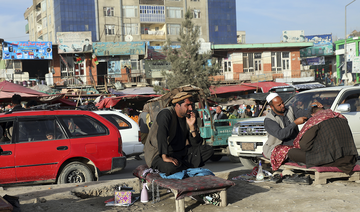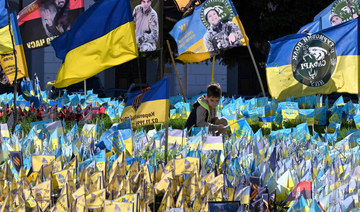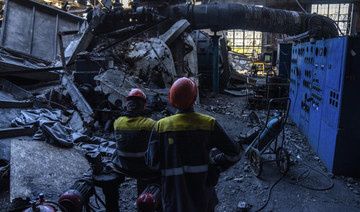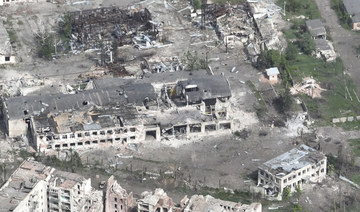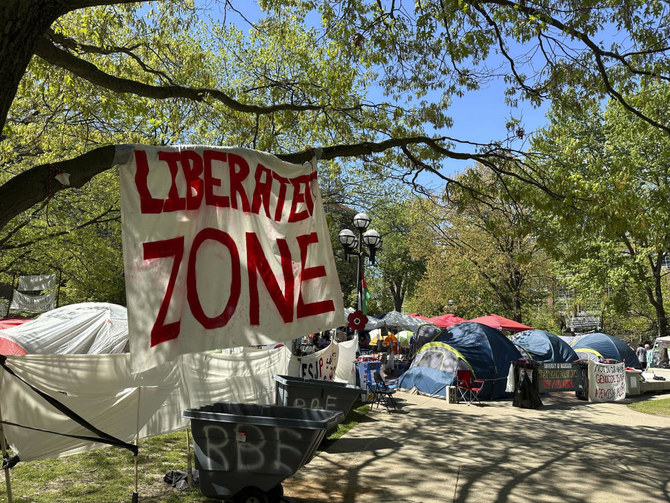KABUL: It has been three years since Jamila Khoshbo began farming oyster mushrooms in a section of her tiny house in the Dasht-e-Barchi neighborhood of southeastern Kabul.
The 48-year-old Afghan mother-of-four said that she learned how to cultivate the fungi from the local radio and “decided to try it since it requires much less space, water and money to grow.”
“I have been in this business since 2019. All you need is a space of four by five meters, and clean wheat straw with chlorine. Keep the mushrooms in plastic bags vertically on posts in humid conditions for several weeks and they will be ready to eat or sell,” Khoshbo told Arab News.
Today, she earns nearly $200 a month — more than the salary of a government employee — by selling to grocers in the area.
Khoshbo is one of a growing number of landless women who are growing highly nutritious mushrooms in their kitchens or backyards rather than working in the male-dominated farming sector.
Since the Taliban’s ouster in 2001, Afghan women have regained the right to education, to vote and to work outside their homes.
Still, it is not an easy place to be a woman, with forced marriages, domestic violence and maternal mortality prevalent across the country, particularly in rural areas.
However, access to public life has improved, especially in the capital Kabul, where most women work, and more than a quarter of the parliament is female.
Also, with drought and an acute water shortage affecting several areas of this mainly agricultural nation, growing mushrooms has offered a new lease of life to traditional farmers who prefer cultivating the fungi to other fruits and vegetables since it is cheap and “low maintenance.”
“It needs little water and is a very good, small-scale and clean business which requires two to three people to operate,” Rasool Rezaie, a 28-year-old resident of the Ghazni province in central Afghanistan, told Arab News.
Rezaie learned to grow mushrooms during a stay in Russia in 2012, when he had moved there to escape the insecurity and unemployment plaguing Afghanistan.
He returned to his homeland in 2016 and began selling computers. But “business was not good at all,” he said.
Two years ago, he set up a “mushroom farm” in Kabul.
“I was passing the Ministry of Agriculture one day and saw an official teaching a group of people how to grow mushrooms. Suddenly, I recalled my experience in Russia and set up this business,” Rezaie told Arab News.
His initial farm was small and produced 50 kg of mushrooms, but he has expanded the business to “bigger rooms” and now cultivates nearly 1,000 kg, earning $500 per month.
The cash flow is important for Rezaie, who is the family’s sole bread earner and takes care of his siblings following their parents’ death.
“I sell the mushrooms in the local market and teach new farmers, too,” he said, providing a textbook example of crowdsourced domestic farming by using limited resources.
“It’s easy to learn. I explain the process to interested customers, discuss what sort of tools they need and how to keep the buds at a certain temperature, etc. If someone else can benefit from growing mushrooms, why not?” he said.
Officials agree, with Mohammad Aman Aman, head of the agriculture ministry’s forestry department, telling Arab News that Afghanistan’s “conditions” were ideal for farming the fungi.
“Growing mushrooms is highly effective in this country because they do not need a lot of land or water. We have made proposals to the presidential palace to promote the growth of mushrooms,” he said.
Aman said that while the oyster variety is the most popular choice among farmers, plans are in place to cultivate truffles and morels — the more expensive assortments — as well.
“We export a small number of truffles produced here to India. So our push is to promote the idea of its growth because it is far more beneficial financially,” he said.
Afghans have for generations consumed wild mushrooms, which sprout in the mountainous north and northeastern regions of the country during spring.
The traditional condiment is added to soups and qorma — a meat-based dish infused with herbs, spices and dry fruits — but is increasingly sought after in restaurants selling pizzas.
In recent years, there has been a surge in mushroom consumption in urban and rural areas, according to traders.
“We buy it from farmers for less than $2 for a kilogram and sell it for double that sometimes. Business is good,” Rasool Dad, a hawker in Kabul, told Arab News.
Rezaie said that he hoped that Afghans’ newfound love for mushrooms could be a catalyst for change in other areas, too, such as altering the country’s image as the global producer of opium.
According to UN estimates, nearly 163,000 ha of land were used for poppy cultivation in 2019.
“If we can produce truffle and morels in large quantities, then farmers will gradually abandon the cultivation of poppy here because these two varieties are costly abroad,” he said.







